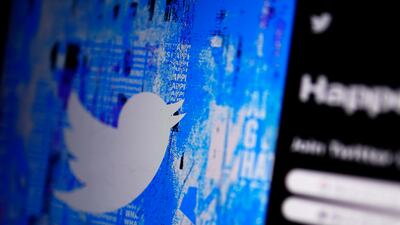Many of Twitter’s high-profile users on Thursday are losing the blue “check marks” that helped verify their identity and distinguish them from impostors on the Elon Musk-owned social media platform.
After several false starts, Twitter began making good on its promise to remove the blue ticks from accounts that do not pay a monthly fee to keep them.
Twitter had about 300,000 verified users under the original blue-tick system — many of them journalists, athletes and public figures.
Profiles for the Pope, former president Donald Trump and US government departments appeared to be unverified as of Thursday afternoon.
The costs of keeping the ticks range from $8 a month for individual web users to a starting price of $1,000 monthly for organisations, plus $50 monthly for each affiliate or employee account.
Twitter does not verify the individual accounts to ensure they are who they say they are, as was the case with the previous blue ticks doled out during the platform’s pre-Musk ownership.
Celebrity users, from basketball star LeBron James to Star Trek’s William Shatner, have baulked at joining the new system.
Actress Halle Berry on Wednesday evening tweeted an older video of her dancing and joining a talk show with the caption: “Me joining you all tomorrow unverified.”
After buying Twitter for $44 billion in October, Mr Musk has been trying to boost the struggling platform’s revenue by pushing more people to pay for a premium subscription.
But his move also reflects his assertion that the blue verification marks have become an undeserved or “corrupt” status symbol for elite personalities, news reporters and others granted verification free of charge by Twitter’s previous leadership.
Twitter began tagging profiles with a blue tick starting about 14 years ago.
Along with shielding celebrities from impersonators, one of the main reasons was to provide an extra tool to curb misinformation.
Most “legacy blue checks” are held by those who are not household names, including politicians, activists and people who suddenly find themselves in the news, as well as little-known journalists at small publications around the globe.
One of Mr Musk’s first product moves after taking over Twitter was to launch a service granting blue ticks to anyone willing to pay $8 a month.
But it was quickly inundated by impostor accounts, including those impersonating Nintendo, pharmaceutical company Eli Lilly and Mr Musk’s businesses Tesla and SpaceX, so Twitter had to temporarily suspend the service days after its launch.
The Associated Press contributed to this report

